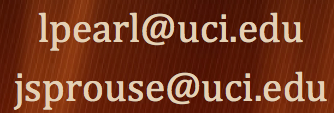Abstract: Learning Recursion
A line of recent work has put forward the hypothesis that recursion is the defining property of the human capacity for language. One kind of support for this hypothesis comes from experiments demonstrating the inability of non-human species to induce recursive, as opposed to iterative, patterns. However, such studies have left unexplored the question of the conditions under which it is rational for a learner to draw the conclusion that a sample of data was generated by a recursive grammar. In this talk, I explore this question, its consequences for the interpretation of past experimental results, and its implications for Universal Grammar.
